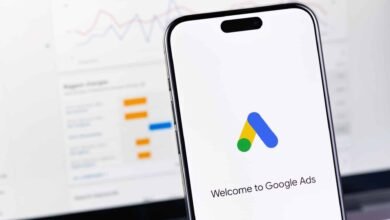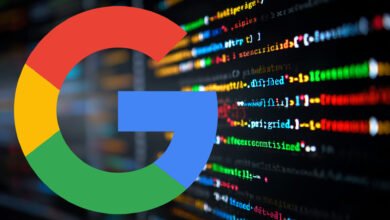Google Claims Full Ownership of Advertiser Assets in Local Services Ads

▼ Summary
– Google Ads updated its Terms of Service for Local Services Ads (LSA), allowing Google and its affiliates to use, modify, and analyze all content within an advertiser’s LSA profile, including phone calls.
– Advertisers must opt in to the new terms by June 5, or their ads will no longer be eligible to serve; agencies can accept these terms on behalf of their clients.
– The AI system now analyzes service details, pricing, special offers, and discounts from phone calls, enabling Google to compile a comprehensive pricing map of LSA advertisers.
– The updated terms raise significant privacy, legal, and surveillance concerns, particularly for sensitive industries like legal and medical professionals who may need to opt out entirely.
– Success in the AI Overviews era may depend on optimizing first impressions and intake processes, with businesses potentially gaining visibility through richer business profiles built from synthesized data.
On April 22, Google Ads notified Local Services Ads (LSA) advertisers about a crucial update to its Terms of Service. This new policy grants Google the right to use, modify, and analyze all content within an advertiser’s LSA profile, including phone calls from potential customers.
These rights are not limited to Google’s own platforms but extend to its affiliates as well.
Indeed, Google has already been monitoring LSA phone calls digitally. In July 2024, they transitioned from a manual lead dispute process to an automated, AI-driven system. While this benefited advertisers who didn’t closely track lead quality, those with stringent review processes ended up incurring higher costs.
The AI’s analysis now goes beyond lead quality, capturing service details, pricing, special offers, and discounts. Consequently, Google is in a position to compile a comprehensive pricing map of LSA advertisers based on inbound call data.
It remains uncertain whether agency MCCs can override an individual advertiser’s consent or if clients are even aware when their data rights are transferred.
Join us – or else…
Advertisers need to opt in to the new terms by June 5. Failure to do so will result in their ads no longer being eligible to serve.
Agencies have the authority to accept these terms on behalf of their clients, though it remains questionable whether clients are always informed when this happens.
Problems and pontifications
Although speculative, the updated terms pose significant privacy, legal, and surveillance concerns.
Abuse of pricing data
Google’s update specifically mentions pricing information. This opens the possibility of using that data in AI-driven pricing models, potentially allowing Google to influence bidding strategies based on advertiser revenue.
Privacy
The shift from simple call monitoring to full data synthesis raises serious privacy issues. For example, a criminal defense firm receiving calls where prospective clients share incriminating details could face significant privacy breaches.
More troubling is the potential to build caller-level profiles, tracking individuals through multiple calls and piecing together deeply personal information. For instance, details about someone’s search for a cheap plumber due to a house sale stemming from a divorce caused by infidelity, all while battling for custody of a diabetic child after losing a job and health insurance, could be compiled.
YMYL industries
Certain industries might need to opt out entirely. Attorney Raif Palmer stated bluntly: “I don’t think lawyers can agree, which means they can’t use LSA period.” With confidentiality obligations and Google claiming rights to recorded conversations, legal and medical professionals may have no ethical choice but to walk away. It is uncertain whether Google will eventually make exemptions for industries under the “Your Money or Your Life” (YMYL) umbrella.
AI Overviews
All this data – from images and websites to recorded calls – feeds into AI Overviews. Businesses that embrace this ecosystem could gain visibility as Google builds richer business profiles from this content stream.
Intake
Success in the AI Overviews era might hinge on the first impression. For example, having a friendly, keyword-savvy receptionist or an automated message crafted to hit all the right search triggers could be beneficial. In the legal field, intake staff might soon be trained to “groom” the AI Overviews by emphasizing key attributes like experience, recognition, language skills, and competitive pricing.
Responding strategically to Google’s new LSA terms
As these changes are still in the early stages and with six weeks until the opt-in deadline, there is likely more discussion and potential pushback to come, particularly from sensitive industries.
Interestingly, the Google representatives we spoke with seemed unaware of the program details.
(Source: Search Engine Land)





